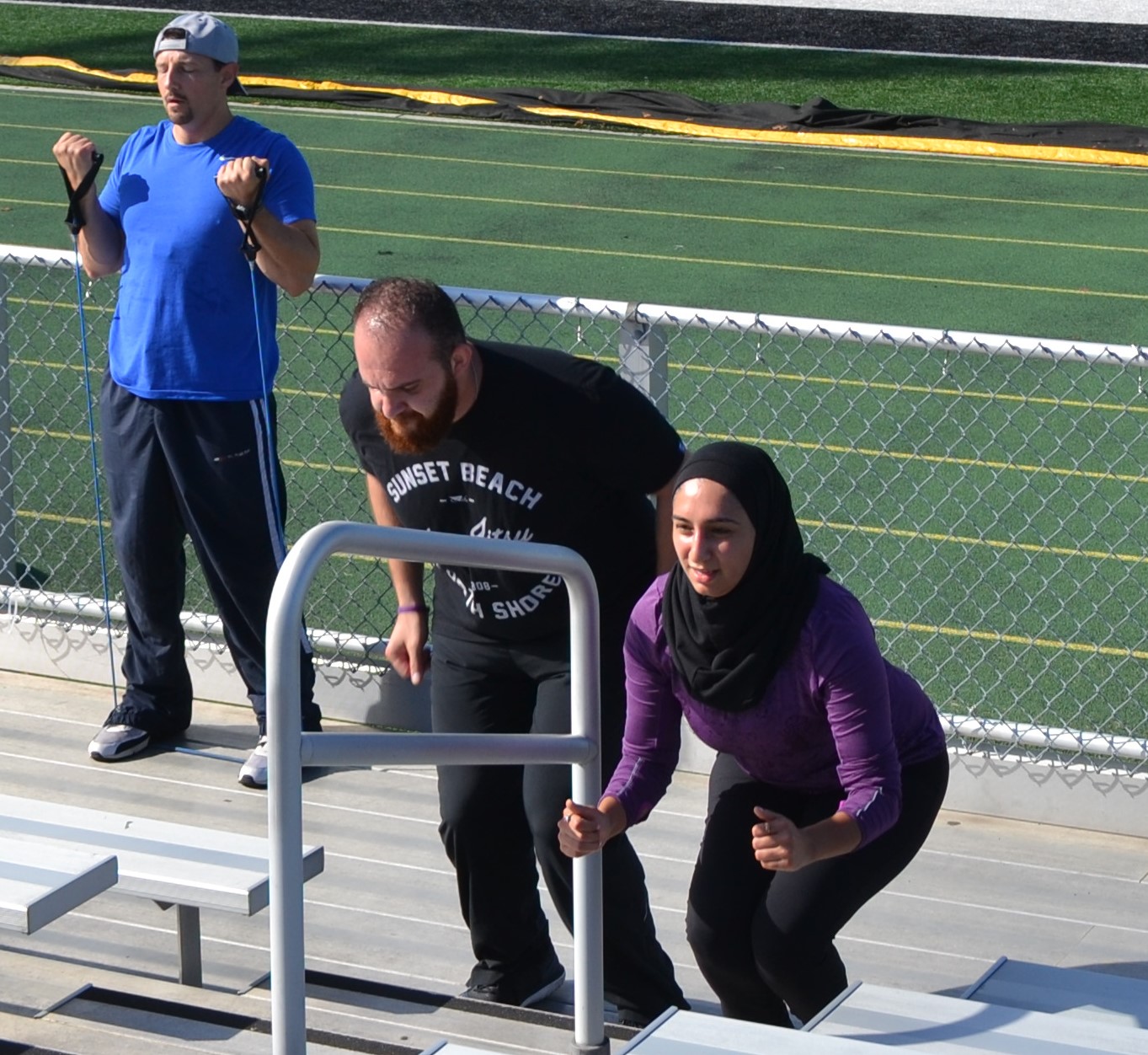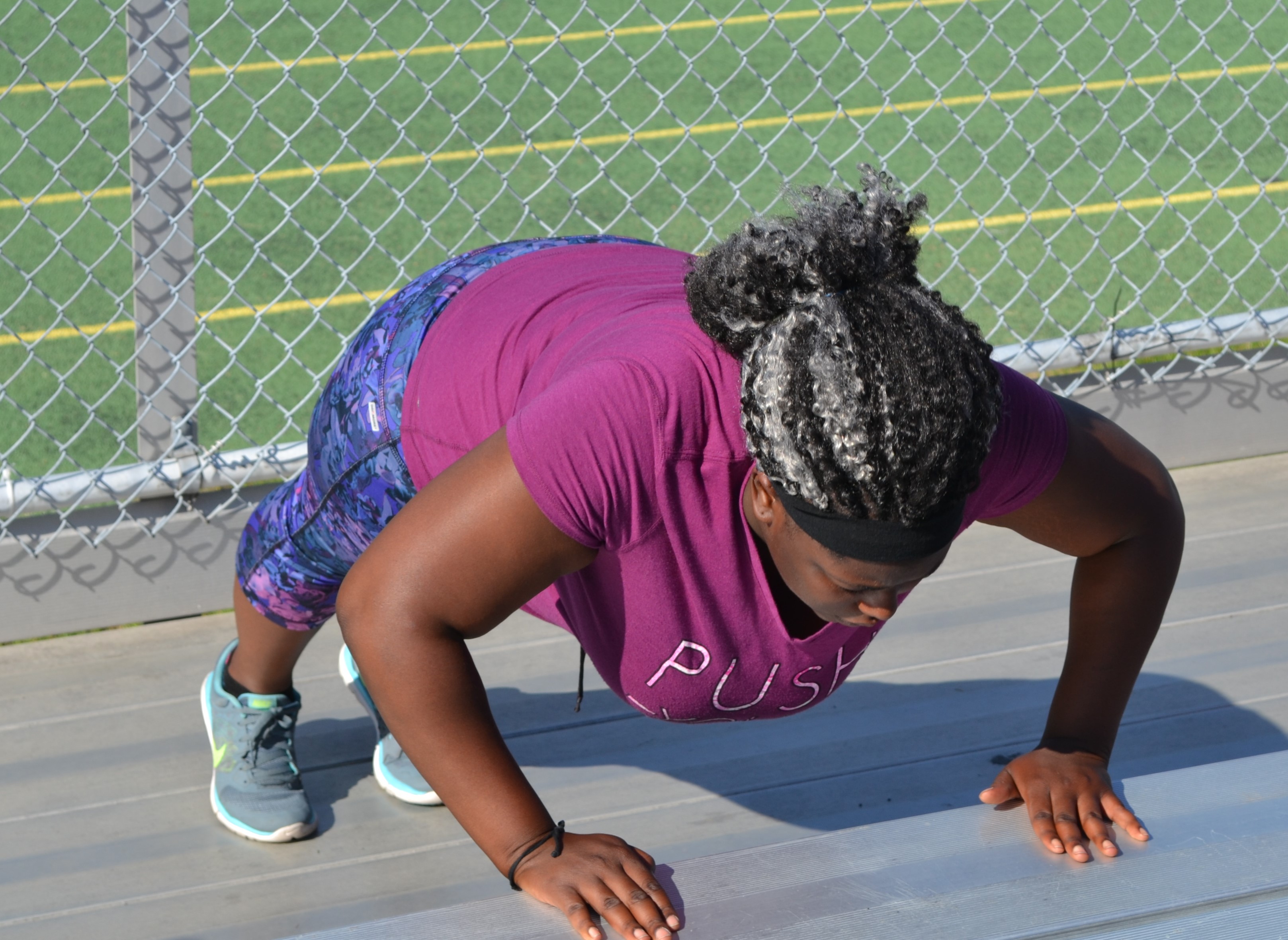Improve your health and academic performance with lifestyle fitness activities
In recent years, physical education has declined significantly throughout the United States. But did you know that participation in  physical education courses can help you improve your academic performance as well as your overall health and well-being?
physical education courses can help you improve your academic performance as well as your overall health and well-being?
Studies have shown that students who are physically active have higher levels of cognitive functioning and lower levels of anxiety and depression when compared to their inactive counterparts. In addition, research from Harvard University demonstrates that alumni who exercise have reduced rates of mortality and morbidity. That is, those who exercise throughout their lifespan tend to live longer, healthier lives.
Relieving stress and maintaining a school-life balance is a big reason Destynee Jones, a senior majoring in Biomedical Sciences, takes yoga (LFA 1480). "I always feel good after leaving class. I'm always tense and stressed out, and it feels good to take this class and leave feeling more calm and relaxed."
Some colleges and universities require that students take four physical activity classes to graduate. Students are often so busy with the demands of their coursework that they feel they do not have the time to exercise; however, by requiring students to take physical activity courses, the university hopes they will learn how to make physical activity a part of their regular routine. This tactic not only benefits students while they are in school but also serves as a bridge for promoting life-long physical activity.
Although they are not part of the general education curriculum, Wayne State University does provide a number of Lifestyle Fitness Activities (LFA) through the Division of Kinesiology, Health and Sport Studies, which is part of the College of Education. Students may choose to take these diverse and interesting classes — which are taught by physical activity professionals and designed to help individuals take charge of their own health, quality of life and recreational future — for credit as electives towards their degree. LFA courses are open to undergraduate and graduate students as well as faculty and staff.
 "Courses cover a wide range of activities, including swimming, fencing, T'ai Chi, yoga, Pilates, team sports and strength training. Students can even learn how to prepare for a 5K or earn their First Aid certification," said Kristen Kaszeta, a lecturer, LFA coordinator, and a research assistant for the Center for Health and Community Impact. "Our students have the opportunity to explore different activities, learn proper technique and form, practice new skills and become familiar with equipment as they develop healthy habits that can increase their clarity, confidence, strength and stamina."
"Courses cover a wide range of activities, including swimming, fencing, T'ai Chi, yoga, Pilates, team sports and strength training. Students can even learn how to prepare for a 5K or earn their First Aid certification," said Kristen Kaszeta, a lecturer, LFA coordinator, and a research assistant for the Center for Health and Community Impact. "Our students have the opportunity to explore different activities, learn proper technique and form, practice new skills and become familiar with equipment as they develop healthy habits that can increase their clarity, confidence, strength and stamina."
"When you take a class for credit, you can learn at a pace which you are comfortable with and with people at the same level as you," said Marian Elhallak, a senior majoring in pharmacy. "It's not like going to a studio with all the advanced people."
Enrolling in a physical activity course for credit has significant advantages to joining a gym or a fitness center-motivation being a key thing. As a student enrolled in the course, attendance is a key part of your grade. If you don't show up, it impacts your grade. Additionally, time management is built in with a set schedule for the semester, leaving you little to no excuses for not attending class and getting in your daily physical activity.
While you may be busy pursuing your degree, remember that taking care of yourself is every bit as important as taking care of your coursework. Regular physical activity can help you maintain balance, increase your focus, and improve your overall health and well-being. Whether you desire to improve academic performance, aspire to become more active, want to acquire new skills or require a break from the normal classroom setting, lifestyle fitness activities can help.
To register for an LFA course, visit registration.wayne.edu. (Use keyword search LFA.) For more information, contact Kristen Kaszeta at kristen.kaszeta@wayne.edu or (313) 577-6210.
by Tracy A. Walker